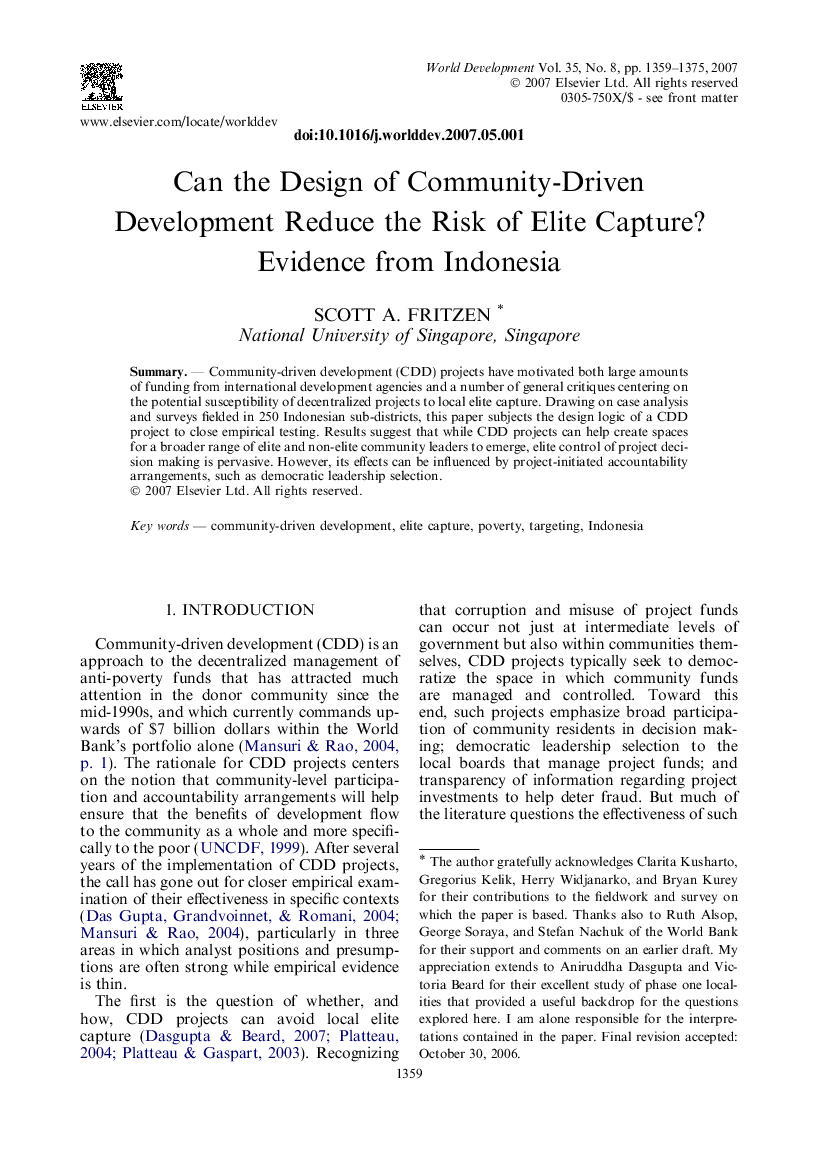| Article ID | Journal | Published Year | Pages | File Type |
|---|---|---|---|---|
| 991188 | World Development | 2007 | 17 Pages |
Abstract
SummaryCommunity-driven development (CDD) projects have motivated both large amounts of funding from international development agencies and a number of general critiques centering on the potential susceptibility of decentralized projects to local elite capture. Drawing on case analysis and surveys fielded in 250 Indonesian sub-districts, this paper subjects the design logic of a CDD project to close empirical testing. Results suggest that while CDD projects can help create spaces for a broader range of elite and non-elite community leaders to emerge, elite control of project decision making is pervasive. However, its effects can be influenced by project-initiated accountability arrangements, such as democratic leadership selection.
Related Topics
Social Sciences and Humanities
Economics, Econometrics and Finance
Economics and Econometrics
Authors
Scott A. Fritzen,
